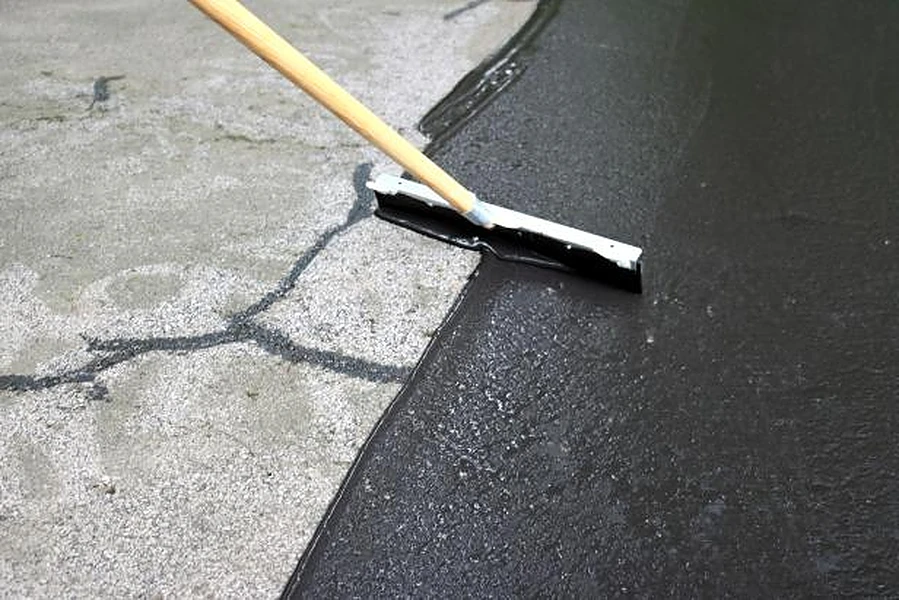Sealing asphalt surfaces is a process that helps to protect the surface from weathering and wear. It also helps to keep the surface looking new by preventing fading and staining. The sealant is applied in a thin coat, and it dries to a hard finish that resists water, oil, and gasoline.
But how often to seal the asphalt driveway? If you want to know more, we invite you to read further as we’re going to talk about this topic in today’s post.
Recommended Time For Re-Sealing
When choosing how often to seal asphalt driveways, climate and traffic conditions are the two main factors to consider. In general, asphalt sealing should be done every one to three years in order to keep the surface in good condition and prevent damage from weathering or wear and tear.
If you live in an area with hot, sunny weather, you may need to seal your driveway more frequently than someone who lives in a cooler climate. The same is true if your driveway sees a lot of traffic from cars, bikes, or pedestrians. If you’re not sure how often to seal your asphalt surface, it’s best to err on the side of caution and do it more often rather than less.
Sealing an asphalt surface is a fairly simple process, and it’s one that most homeowners can do themselves. You’ll need to purchase some supplies, including a sealer, before getting started. Once you have everything you need, you can begin the sealing process by cleaning the surface of your driveway and allowing it to dry completely.
Once the surface is clean and dry, you can apply the sealer using a brush, roller, or sprayer. For best results, be sure to follow the manufacturer’s instructions carefully. Once you’ve applied the sealer, you’ll need to allow it to dry completely before walking or driving on it.
Hiring a professional contractor to seal your asphalt driveway is another option, and the most recommended way of resealing asphalt according to experts. This can be a good choice if you’re not comfortable doing the job yourself or if you have a large surface area to cover. Sealing an asphalt driveway is an important part of maintaining it, and it’s something that should be done on a regular basis. By following the tips above, you can ensure that your driveway stays in good condition for years to come.
If you’ve just resealed your asphalt driveway, you’ll want to wait a few days before using it again. This will give the sealant enough time to dry and harden. Once it’s fully cured, your driveway should be safe to drive on. However, you should avoid parking in the same spot for extended periods of time. This can cause the sealant to wear down prematurely.
Aside from that, it is generally recommended to wait at least 24 hours after sealcoating before allowing traffic on the surface. This will give the asphalt enough time to cure properly and provide a longer-lasting finish. In most cases, it is best to wait 3-5 days before driving on a newly sealcoated driveway.
What If Resealing Is Not Done Within The Recommended Time Period?
If an asphalt driveway is not re-sealed after one to three years, the asphalt can start to crack and chip. This is because the oils and minerals in the asphalt will start to dissipate, which will make the surface less durable. If these cracks and chips are not fixed, water can get into the asphalt and cause it to further deteriorate. This is why it’s important to have an asphalt driveway sealed every one to three years, depending on the climate and amount of traffic the driveway sees.
Moreover, if you don’t seal your asphalt driveway, it will be more expensive in the long run. Not only will you have to repave the driveway every few years, but the constant exposure to the elements will also cause it to wear down much faster. By sealing it regularly, you can protect it from UV rays, water damage, and other external factors, and extend its lifespan significantly.
Types Of Emulsions To Be Used
There are many types of asphalt emulsions used in sealcoating. The most common are water-based and solvent-based. Each type has its own advantages and disadvantages.
Water-based emulsions are less toxic and more environmentally friendly than solvent-based emulsions. They are also easier to apply and less likely to cause skin irritation. However, water-based emulsions are less durable and more susceptible to weathering than solvent-based emulsions.
Solvent-based emulsions, on the other hand, are more durable and resistant to weathering than water-based emulsions. They are also less likely to cause skin irritation. However, solvent-based emulsions are more toxic and less environmentally friendly than water-based emulsions.
The best way to determine which type of emulsion is right for your needs is to consult with a professional sealcoating contractor.
Overall, sealing asphalt driveways is a simple and effective way to protect it from weather damage and keep it looking new. The key is to do it regularly, at least every one to three years. Homeowners can do the job themselves with some basic supplies and a little bit of know-how, or they can hire a professional contractor, which is the more practical option to do. Either way, regular asphalt sealing will help keep an asphalt driveway looking great for years to come.

